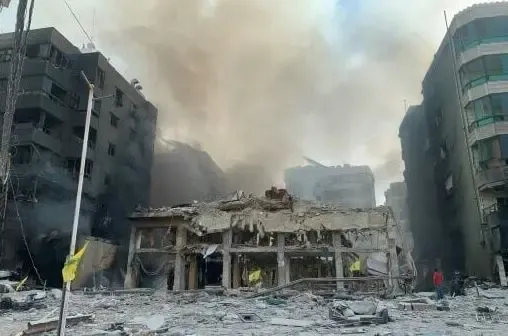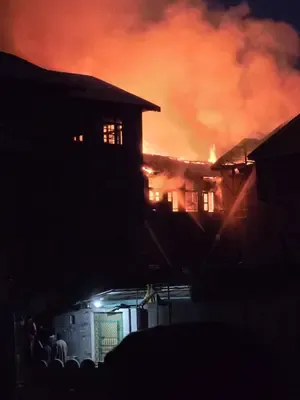Israel and Hamas Exchange Blame Over Gaza Ceasefire Negotiation Delays

Jerusalem, Dec 25 (NationPress) Israel and Hamas have engaged in a war of words on Wednesday, with both parties blaming each other for the postponements in finalizing a ceasefire agreement for Gaza.
In a statement, Hamas reported that discussions in Doha, facilitated by Qatar and Egypt, were "progressing seriously." However, it charged Israel with introducing "new conditions regarding the withdrawal from Gaza, the ceasefire, the prisoners, and the return of displaced individuals." According to Hamas, these stipulations were responsible for the delay in reaching an agreement that was nearly attainable.
In a rebuttal, the office of Israeli Prime Minister Benjamin Netanyahu issued a statement refuting Hamas's claims. The statement indicated that Hamas had reversed previously reached understandings and was "impeding the negotiations."
On Tuesday, Israel withdrew its delegation from the discussions in Doha, asserting that the team had participated in a week of "meaningful" negotiations. "The team is returning for internal consultations in Israel concerning the continuation of talks for the return of our hostages," the office stated, as reported by the Xinhua news agency.
This delegation consisted of high-ranking officials from the Mossad, Shin Bet security agency, and the Israel Defense Forces (IDF).
The retraction of Israeli forces from the coastal Palestinian territory and the duration of the ceasefire have been significant sticking points in prior unsuccessful negotiation attempts. Hamas aims to end the conflict entirely, while Israel demands the dismantling of Hamas's control over Gaza prior to any resolution and wishes to maintain a military presence in the enclave even post-ceasefire.
On Monday, Prime Minister Netanyahu remarked that "there has been progress" in the pursuit of a ceasefire-for-hostages agreement with Hamas, yet he cautioned that the timeline for achieving a deal remains uncertain.
Addressing the Knesset, Israel's parliament, Netanyahu stated, "I do not know how long it will take," while expressing his commitment to "continue to act in every possible way until we bring everyone home."
Foreign Minister Gideon Saar also detailed aspects of the agreement during a closed session of the Knesset Foreign Affairs and Defence Committee, characterizing it as "a phased, gradual framework."
Israel's Diaspora Minister Amichai Chikli told Kan Reshet Bet public radio that there had been "some" advancement towards an agreement, noting that both sides are closer to a deal than in recent months. He mentioned that the initial phase would involve "a humanitarian phase," which would include a 42-day ceasefire and the release of certain hostages.
"This ceasefire could last six months or 10 years, depending on the dynamics that unfold on the ground," Chikli stated.
Israel has been executing a large-scale offensive against Hamas in the Gaza Strip as retaliation for a Hamas attack on the southern Israeli border on October 7, 2023, during which approximately 1200 individuals were killed and around 250 taken hostage.









